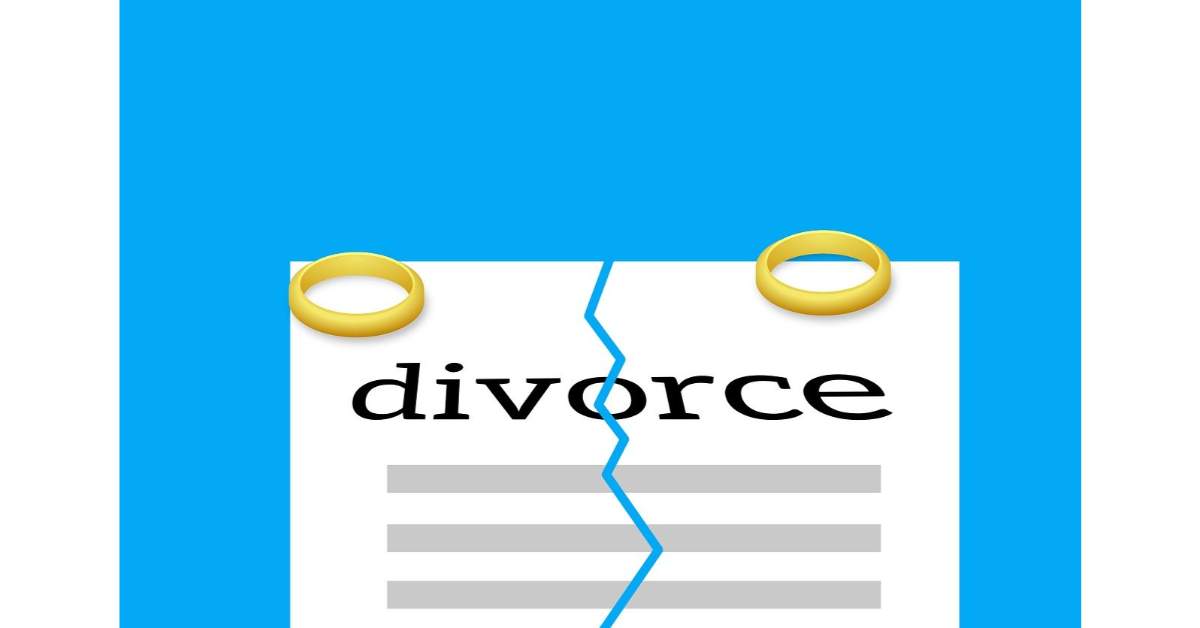Divorce is a significant life event that signals the end of a marriage relationship.
Divorce in India, where cultural, social, and legal factors are intertwined, can be complicated and emotionally difficult. This thorough guide seeks to provide a detailed overview of the divorce process in India, including legal grounds, procedures, essential considerations, practical guidance, and any obstacles that individuals may face along the route.
Legal Grounds for Divorce in India:
India’s diverse society is governed by different personal laws that determine the grounds for divorce. Understanding these legal grounds is essential for individuals contemplating divorce.
Here’s a breakdown of the common legal grounds for divorce under various personal laws:
Hindu Marriage Act, 1955:
- Adultery
- Cruelty
- Desertion for a continuous period of at least two years
- Conversion to another religion
- Mental disorder
- Venereal disease
- Renunciation of the world
Special Marriage Act, 1954:
- Adultery
- Cruelty
- Desertion for a continuous period of at least two years
- Unsoundness of mind or mental disorder
- Venereal disease
- Renunciation of the world
Muslim Personal Law:
- Judicial divorce on grounds such as cruelty, desertion, etc.
Christian Personal Law:
- Adultery
- Desertion
- Unsoundness of mind
- Conversion to another religion
- Venereal disease
Parsi Marriage and Divorce Act, 1936:
- Adultery
- Desertion
- Conversion to another religion
- Unsoundness of mind
- Venereal disease
Understanding the legal grounds applicable to one’s marriage is crucial before initiating divorce proceedings.
What is the Divorce Procedure in India?

The divorce process in India involves several steps, and navigating through them can be overwhelming. Here’s a simplified overview of the divorce process:
Filing the Petition:
The spouse seeking divorce (petitioner) initiates the process by filing a petition before the appropriate family court or district court. The petition should include details such as the grounds for divorce, personal information of both spouses, and any other relevant details.
Service of Notice:
Once the petition is filed, the court issues a notice to the other spouse (respondent), informing them of the divorce proceedings. The respondent has the right to contest or consent to the divorce.
Response by Respondent:
The respondent has the opportunity to file a response to the petition, either contesting or consenting to the divorce. If contested, both parties may need to provide evidence and arguments to support their case.
Mediation/Counseling:
In some cases, the court may refer the parties to mediation or counseling to explore the possibility of reconciliation. Mediation aims to facilitate communication and reach mutually acceptable solutions.
Evidence and Arguments:
Both parties present their evidence and arguments before the court to support their case. This may include testimonies, documents, and other relevant information.
Judgment:
Based on the evidence presented and the applicable laws, the court pronounces its judgment, either granting or denying the divorce. The court considers factors such as the grounds for divorce, wellfare of any children involved, financial arrangements, and other relevant factors.
Appeals:
Either party aggrieved by the court’s decision may appeal to a higher court, challenging the judgment. The appellate court reviews the case and may uphold, modify, or reverse the lower court’s decision.
Key Considerations in Divorce Procedure in India:
Navigating the divorce process involves various considerations and challenges that individuals should be aware of:
Child Custody:
The custody of children is a significant consideration in divorce proceedings, with the court prioritizing the best interests of the child. Factors such as the child’s age, welfare, and relationship with each parent are taken into account.
Alimony and Maintenance:
The court may order one spouse to provide financial support (alimony/maintenance) to the other spouse, especially if they are unable to support themselves. The amount and duration of alimony may vary based on factors such as the parties’ income, assets, and standard of living.
Division of Assets:
The division of marital assets and property is another crucial aspect of divorce proceedings, with the court striving for a fair and equitable distribution. Marital assets may include property, bank accounts, investments, and other valuable assets acquired during the marriage.
Timeframe:
The duration of divorce proceedings can vary depending on factors such as the complexity of the case, backlog of cases in the court, and willingness of the parties to cooperate. It’s essential to be prepared for potential delays and uncertainties during the process.
Practical Advice for Divorce Process in India:
Going through a divorce can be emotionally challenging and legally complex. Here are some practical tips to navigate the process more smoothly:
Seek Legal Counsel:
Consulting with a qualified family law attorney is crucial to understand your rights, obligations, and legal options. An experienced attorney can provide personalized advice and guide you through the legal proceedings.
Maintain Open Communication:
Attempt to communicate openly and respectfully with your spouse to facilitate a smoother divorce process. Effective communication can help address issues and reach agreements more efficiently.
Prioritize Your Well-being:
Divorce can take a toll on your emotional and mental health, so prioritize self-care and seek support from friends, family, or a therapist. Take time to process your emotions and focus on activities that bring you joy and relaxation.
Be Prepared for Negotiation:
Be prepared to negotiate with your spouse regarding issues such as child custody, alimony, and asset division. Approach negotiations with a willingness to compromise and find mutually acceptable solutions.
Follow Legal Procedures:
Adhere to the legal procedures outlined by the court and provide accurate and timely documentation as required. Stay organized and keep track of important deadlines and appointments throughout the process.
Challenges and Considerations:
While navigating the divorce process, individuals may encounter various challenges and considerations:
Emotional Impact:
Divorce can trigger a range of emotions, including sadness, anger, grief, and anxiety. It’s essential to acknowledge and address these emotions, whether through therapy, support groups, or self-care activities.
Financial Implications:
Divorce can have significant financial implications, including the division of assets, alimony/maintenance payments, and changes in living expenses. It’s crucial to assess your financial situation and plan accordingly for the future.
Co-parenting Arrangements:
If children are involved, co-parenting arrangements need to be established to ensure their well-being and upbringing. Effective communication, cooperation, and flexibility are key to successful co-parenting.
Social Stigma:
Despite changing societal attitudes, divorce may still carry a social stigma in some communities. It’s essential to surround yourself with supportive friends and family who can offer understanding and encouragement during this challenging time.
Conclusion:
The divorce procedure in India is a multidimensional journey that involves careful thinking, legal counsel, and emotional fortitude. Understanding the legal grounds, procedures, critical considerations, practical advice, and probable problems covered in this guide can help individuals navigate the divorce process with clarity, confidence, and compassion. Remember to seek help from legal professionals & loved ones.




I’ve been exploring for a little bit for any high-quality articles or blog posts on this sort of area . Exploring in Yahoo I eventually stumbled upon this site. Reading this info So i’m happy to show that I have an incredibly just right uncanny feeling I found out exactly what I needed. I most unquestionably will make certain to do not put out of your mind this web site and provides it a glance on a relentless basis.
I believe you have observed some very interesting points, appreciate it for the post.
I would like to point out my admiration for your kind-heartedness giving support to people that really want assistance with this particular issue. Your very own commitment to getting the solution along had been incredibly effective and have constantly made professionals like me to attain their objectives. Your new helpful guide entails so much to me and substantially more to my colleagues. Thanks a lot; from all of us.
Do you have a spam problem on this blog; I also am a blogger, and I was wanting to know your situation; many of us have created some nice practices and we are looking to swap methods with other folks, be sure to shoot me an email if interested.
Wonderful analysis! Your insights are very enlightening. For those interested in further details, here’s a link: DISCOVER MORE. Keen to hear your views!
[…] Checkout: Divorce Process in India […]
[…] Procedure for Filing Divorce Papers: […]